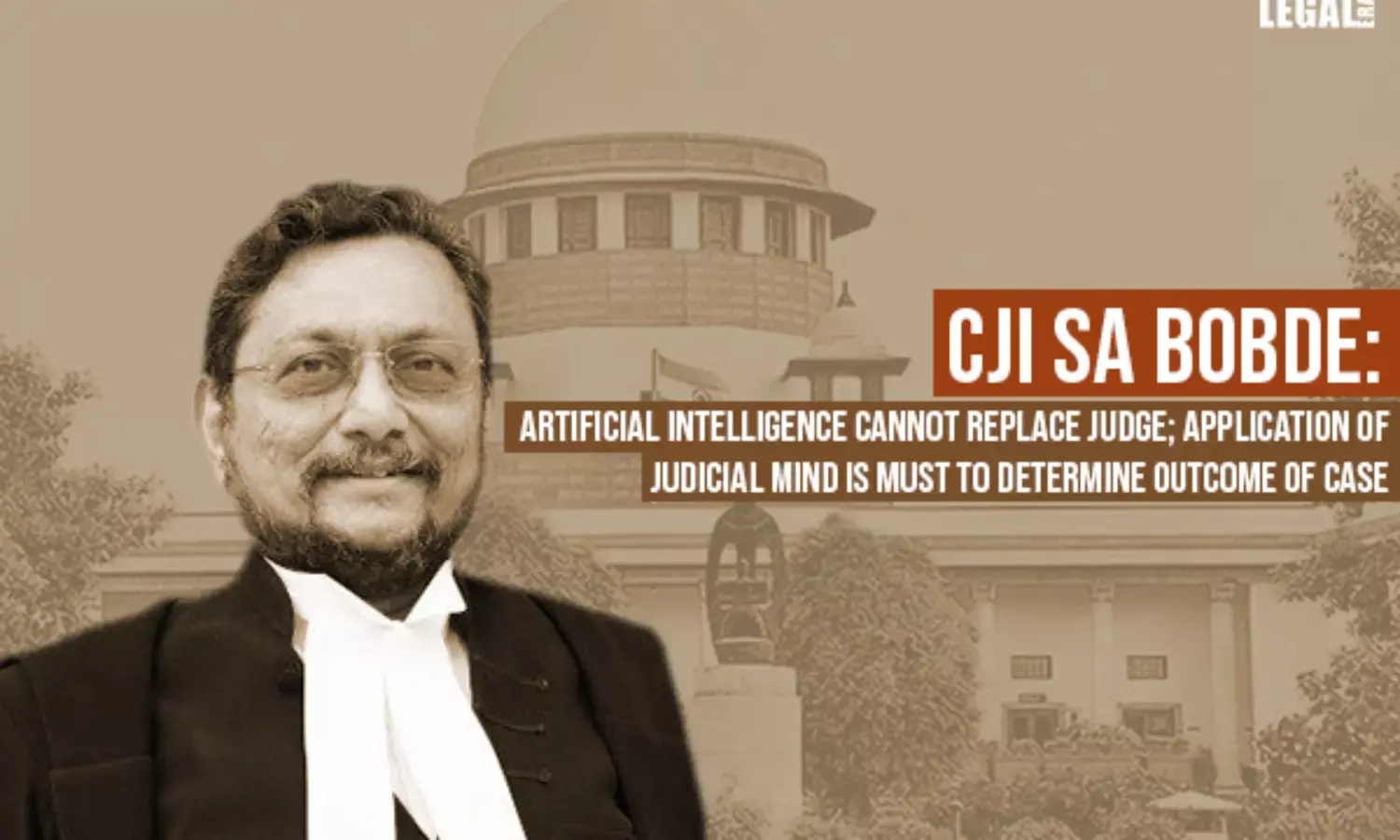CJI SA Bobde: Artificial Intelligence Cannot Replace Judge; Application of Judicial Mind Is Must to Determine Outcome of Case
Chief Justice of India (CJI) SA Bobde while speaking at a launch on “Responsible AI for the Indian Justice System” that;

CJI SA Bobde: Artificial Intelligence Cannot Replace Judge; Application of Judicial Mind Is Must to Determine Outcome of Case Chief Justice of India (CJI) SA Bobde while speaking at a launch on "Responsible AI for the Indian Justice System" that was compiled by the Vidhi Centre of Law and Policy along with TCG Crest, said that artificial intelligence (AI) system can supplement but...
CJI SA Bobde: Artificial Intelligence Cannot Replace Judge; Application of Judicial Mind Is Must to Determine Outcome of Case
Chief Justice of India (CJI) SA Bobde while speaking at a launch on "Responsible AI for the Indian Justice System" that was compiled by the Vidhi Centre of Law and Policy along with TCG Crest, said that artificial intelligence (AI) system can supplement but cannot supplant a Judge as there is a lot of emotional basis to a (judicial) decision which a machine cannot understand.
CJI Bobde opined that machines cannot replace human decision-making in a judicial system. He added that the function of AI would be to extract information and at speed, it should not be allowed to determine the outcome of the case.
He said that the extraction of information should be the function of AI and not beyond that. Finding out the latest position in law is an important tool and a machine should not perform the function of determining an outcome of a case.
He emphasized that delivering a judgment involves many aspects that a machine cannot do, it involves emotions which are responses to the incident followed by arguments and reasoning all of which eventually lead to the ultimate decision making.
He added that AI functions by following basic responses of the human mind and hence it could do a wonderful job if it had all the information, but it has certain limitations as the final goal was justice and not AI.
While opposing a system of having an automated judicial system he said that "It is not possible for a system of justice to accept a machine however intelligent to replace a human decision." He added, "There is a lot of emotional basis to a (judicial) decision, which AI cannot reach. Hence I have opposed algorithmic reasons for decisions in Court."
He said that the assistive tools could give all the necessary information to arrive at a correct decision as per the existing laws, but not decide when and what to give a verdict on. He emphasized the importance of ensuring that AI system aligns with the ethical principles, constitutional morals, and rights of the citizen.
He expressed his delight at the launch of the Artificial Intelligence portal SUPACE (Supreme Court Portal for Assistance in Courts Efficiency), however, warned that the use of AI like any other technological innovation has its advantages and risks. He opined there is a trend of 'approach-avoidance conflict' in connection with AI.
He said that it is important to push for stakeholder engagement to ensure that technologies that are being integrated further the ends of justice for every citizen of India as mandated by the Constitution.
He added, "You see a particular feature and you want to go ahead, then you see some other feature which retards it and you want to avoid it." The governance and ethics framework was essential to ensure that risks are minimized as far as possible.





